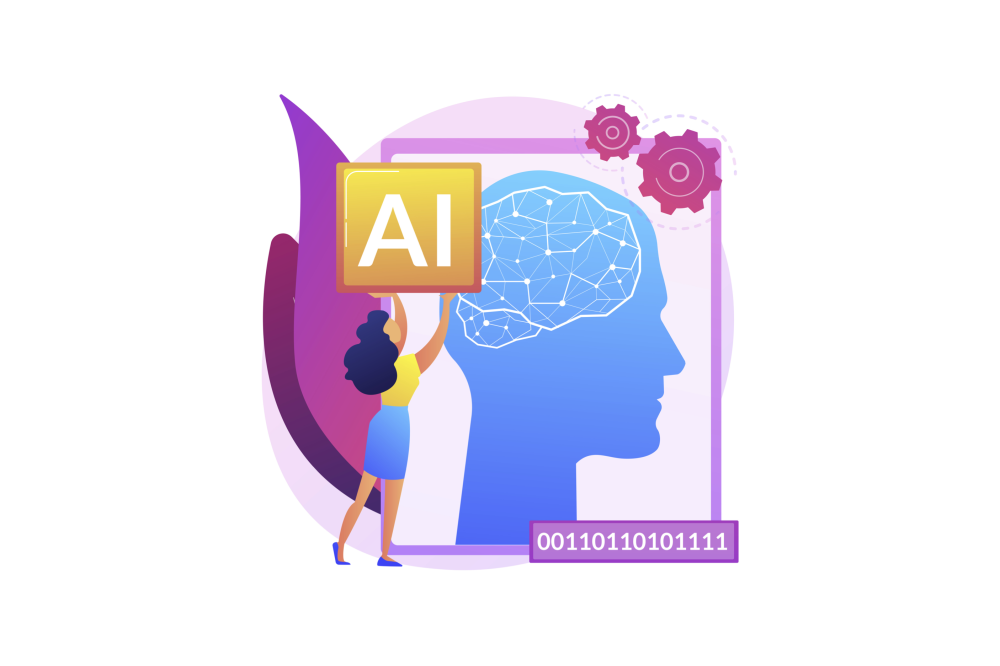Breaking the gender bias: How responsible AI promotes equality Written on

In today's world, biometric technology is practically everywhere. Whether you're unlocking your phone, accessing online services, or buying products, biometrics is what allows us to securely authenticate ourselves. But just because something is popular doesn't mean it's perfect. As with any technology, it is essential to be mindful of the potential biases that may exist.
As we celebrate International Women's Day, it is worth noting that biometric technologies, when not used properly, can have a pernicious impact on women through gender bias. Gender bias refers to the systematic and unfair treatment of individuals based on their gender, which can manifest in various forms, including discrimination, stereotypes, and prejudice. While gender bias has been a longstanding topic in many industries, it has recently become a focus in the realm of AI technologies in general and biometrics in particular, due to the growing use of these technologies.
The issue of gender bias in biometrics is particularly relevant because it can lead to unfair treatment and discrimination, particularly against women and gender minorities, which can lead to denial of access to certain services or resources.
To address the issue of gender bias in biometrics, it is important to first understand the root causes of this bias. There are several factors that contribute to gender bias in biometric technologies, including:
Lack of diversity in data
Biometric technologies rely on large amounts of data to train their algorithms. If the data used to train these algorithms is not diverse enough, the resulting algorithms may not accurately reflect the characteristics of all individuals. For example, if the majority of the data used to train a face matching algorithm is composed of images of men, the resulting algorithm may be less accurate when attempting to identify women.
Stereotyping
Stereotyping is a common human bias that can also affect the development of biometric technologies. If developers hold certain stereotypes or assumptions about certain genders, races, or other characteristics, they may inadvertently design algorithms that reflect these biases.
Lack of ethical considerations
Biometric technologies are often developed with the goal of improving efficiency and convenience, but ethical considerations may not always be prioritized. If developers do not consider the potential ethical implications of their technologies, they may unintentionally create algorithms that perpetuate gender bias or other forms of discrimination.
The role of responsible AI
To break the biometric bias and promote gender equality, it is essential to implement responsible AI practices. Responsible AI refers to the ethical and fair use of AI technologies, considering the potential impact on individuals and society. By adopting responsible AI practices, biometric technologies can be developed and deployed in a way that promotes gender equality and reduces the risk of discrimination.
One key aspect of responsible AI is diversity and inclusion. To ensure that biometric technologies are developed with a diverse range of individuals in mind, it is important to prioritize diversity in the data used to train these algorithms. This means collecting data from a wide range of sources and ensuring that the data is representative of all individuals, regardless of gender, race, ethnicity, or other characteristics.
Another important aspect of responsible AI is transparency. Biometric technologies should be developed and deployed in a way that is transparent and accountable, with clear explanations of how the algorithms work and how they are being used. This can help to build trust and ensure that the technologies are being used in a fair and ethical manner.
In addition to diversity and transparency, responsible AI also involves ongoing monitoring and evaluation of the algorithms. This includes regularly checking for bias and ensuring that any biases that are identified are corrected in a timely manner.
Our commitment to breaking the bias
Breaking the bias is a critical step in promoting gender equality and creating a more just and equitable future. Biometric companies offer many promising applications, but they also frequently forget to target the underlying challenges, including the potential for biases and discrimination.
Youverse is proudly part of the Responsible AI consortium — the largest consortium dedicated to responsible AI. It aims to connect several key organizations, from universities to start-ups and enterprises, to develop fair, explainable AI that minimizes prejudice and the negative impacts of biased technology.
This means taking steps to address biases in the data used to train these systems, involving diverse stakeholders in the development process, and using AI to promote inclusivity and fairness.
As we celebrate International Women's Day and continue to work towards greater gender equality, we must remain vigilant in our efforts to promote responsible and equitable uses of biometric technologies. By doing so, we can create a brighter future for all.






